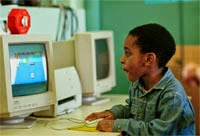Anger-Control Strategies for Children and Teens on the Autism Spectrum
If your youngster does not learn how to release his or her anger appropriately, it can fester and explode in inappropriate ways, or be internalized and damage his or her sense of self-worth. As a mother or father, dealing with an angry youngster is inevitable. Many of us have heard our own pre-parenting voice whisper to us, saying something like, “That will never be my child acting-out like that” (famous last words). Anger is learned, but so is composure! In this post, we will discuss the following: communicating angry feelings in a positive way expressing anger nonviolently learning how to avoid being a victim of someone else's angry actions learning how to control angry impulses learning how to problem solve learning how to remove themselves from a violent or angry situation learning self-calming techniques recognizing angry feelings in themselves and others Click here for the full article...
